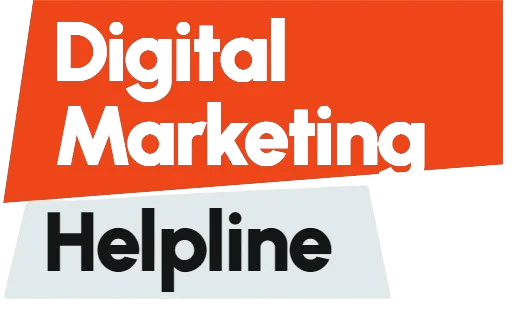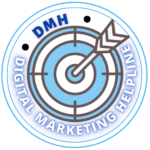
In today’s digital age, online reputation management for a healthcare provider is much more than managing reviews. It is a holistic approach to building and maintaining the digital image of a healthcare provider. The following are the key considerations all stakeholders should be aware of:
Monitoring and Shaping Perception
- ORM means actively monitoring what patients and the public see about your practice online.
- One has to understand how their brand is perceived and make an effort to change it for the better.
Beyond Reviews
- Reviews are still crucial, but they are not the only thing. In addition to reviews, it is vital to manage your social media interaction, optimize search engine results and respond to feedback.
Significance to a Healthcare Provider
The foundations
- Firstly, patients in any healthcare facility focus on trust and credibility. They want to feel that they are in the right hands. A positive online reputation fosters trust.
The power of reviews
- According to a BrightLocal survey, 84% of people trust online reviews as much as personal recommendations. A positive review from satisfied patients is available to millions of potential patients each day.
- Online reviews on Google, Yelp, and Healthgrades, among others, have a significant impact on healthcare practice. However, negative reviews have the opposite effect by reducing confidence and income. Patient Acquisition and Retention
Selecting a provider
- Nowadays, patients rely on patient reviews to select a physician. A comprehensive BrightLocal study found that 71% of patients utilize online review feedback to book appointments with a healthcare provider.
Switching providers
- Over 60% of respondents in a study would consider switching providers or practices if they received bad online feedback. As a result, negative reviews may prompt patients to change practices.
Why Proactive ORM Matters

Lastly, let us return to the issue of the impact of ORM. We will elaborate on why proactive ORM may be more beneficial than reactive.
The Reactive vs. Proactive Approach to ORM
As outlined in more detail in the paper, there are two primary approaches towards ORM:
- Reactive ORM: it consists of responding to the detrimental content or responses only after they emerge;
- Proactive ORM: the proactive approach implies the measures taken to establish and manage a positive online reputation.
It is possible to identify the following reasons why a reactive approach is less preferable:
- Damage control: typically, the measures focus on mitigating damage rather than preventing its emergence;
- Delayed response: as one waits until the harm is inflicted, the measures may become less efficient;
- Impact: the emergence of negative reviews is more detrimental before you can address them.
Therefore, a proactive approach is more desirable for the abovementioned reasons. ORM is influenced by the legal framework, including corresponding legal issues such as privacy violation, defamation and libel, misrepresentation or false advertising, and more.
Optimize Your Online Profiles
Finally, We would like to note the applicable strategy of ORM that you should consider.
Why it Matters
- Optimized visibility: claiming and optimizing profiles at platforms such as Google My Business, Healthgrades, and Zocdoc ensures the information is correct and ranked higher. Full profiles improve local SEO and make it easier for patients to find your practice.
Action Steps
- Visit each platform and claim the profile.
- Fill in all the required information such as contacts, services, and office working hours.
- Upload great pictures of your practice, team, and facilities.
- Encourage satisfied patients to submit you feedback; positive reviews will boost your online reputation and rankings.
Monitor Mentions Online
Why it matters
- Consistent monitoring makes it possible to identify any negative content early in time to be resolved. Make sure to set up notifications on your name, practice, or specialization mentioning on social media, survey facilities, or news outlets.
Action
- Have Google Alerts set up for your name and practice: Google Email notifications will be released every time someone mentions your name.
- Social Media Listening: Listening technology would be Hootsuite or Mention; follow-up where your name or practice has been mentioned. After identification, make sure you use resolutions to respond professionally to the mentions.
Address Negative Reviews Professionally

Why it matters
Damaging reviews do happen; the way you make resolutions matters. Have answers that show professionalism without compromising patient privacy.
Action
- If the patient’s criticism or expression concerns, use that mitigation phrase.
- I actively encourage the testimony to have a private dialogue by phone or by email.
- Do not engage in any arguments online.
- Ensure the answers remain respectful.
FAQs
Is online reputation management just responding to unhappy evaluations?
ORM is a lot more than responding to badbeats online. While responding to damaging content is part of it, proactive online management means ensuring you have precise records on knowledge sites like Google My Business and Healthgrades. Monitor what people are trying to say about you. Reach out to satisfied customers with words of affirmation and send emails to positive revelations. Post blogs, videos, or infographics on your personal information online.
How do I counter rumors or untruthful expressions?
React as fast as possible with proper information. Make sure your facts are accurate, clarify any misunderstandings, stop an argument online.
Healthcare providers online health extends be healthcare the clinic online reputation management . That is why having proactive online reputation management is crucial. Ensure your Google My Business, Healthgrades, and Zocdoc profiles are fully optimized to increase your visibility online. Set up alerts for mentions and online , allowing you an opportunity to nip problems in the bud. Remember, a large number of positive reviews will help your leverage social proof, in addition to your online search Of reading rankings. Always endeavor to respond to negative reviews with professionalism and regularly post blog posts, video, and infographics
Can I use patient testimonials in my content?
Yes, but with consent. Always obtain permission before using patient testimonials, photographs, or videos. Respect privacy regulations and ensure compliance.
How do I handle false information or rumors online?
Respond to inaccurate details swiftly and professionally. Provide factual information, clarify misconceptions, and avoid online arguments.
Healthcare providers’ online reputation management extends beyond clinic walls, making proactive online reputation management (ORM) essential. Proactive online reputation management is critical. Ensure that your Google My Business, Healthgrades, and Zocdoc profiles have been optimized completely to increase your online visibility. Place up alerts for mentions and online activity, allowing you to proactively address problems. Remember that having many positive reviews will help you leverage social proof and improve your search engine rankings for reading. Always aim to respond to negative reviews with professionalism, and regularly post articles, videos, and infographics on

